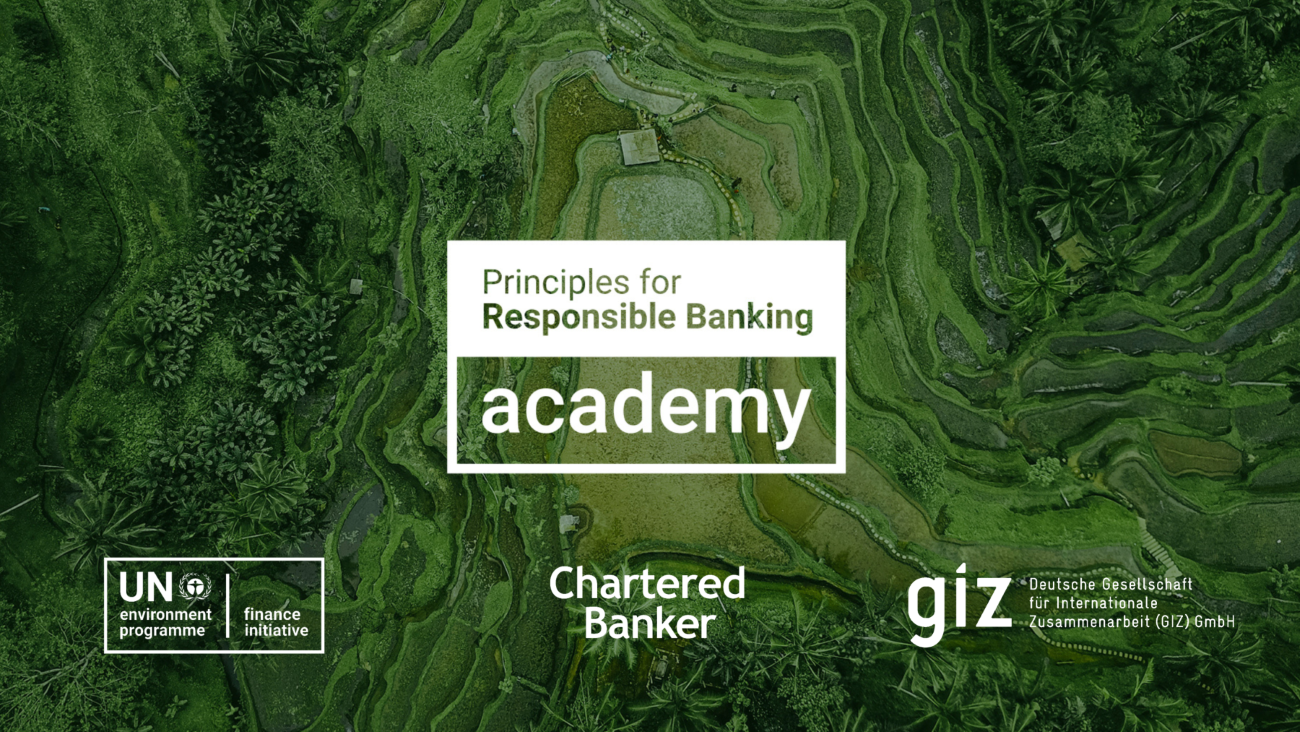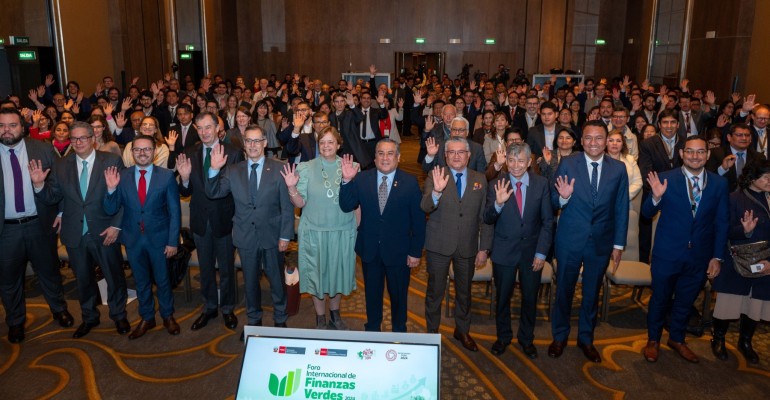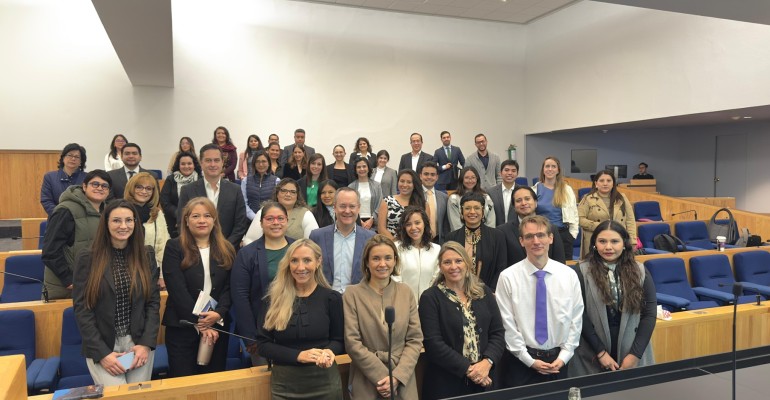The Principlies for Responsible Banking (PRB) Academy expands its training portfolio by adding a course on nature finance
Background
Our world faces a triple planetary crisis of climate change, pollution and nature and biodiversity loss. At a time when more than half the world’s GDP (the equivalent to $58 trillion) is dependent on nature , there is an urgent need to enhance the awareness and understanding of banking professionals worldwide about why the state of nature is so critical for the planet, society, business and the economy.
Description
Reflecting the critical role banks can play in protecting and re-building nature and our environment, the global sustainability academy for bankers - the Principles for Responsible Banking Academy (PRB Academy) – has launched a new nature course, “Introduction to Nature and Responsible Banking”.
This new nature course addresses the necessity for banks globally to build capacity and capability in this incredibly important topic. It provides learners, regardless of their career level or job role, with an understanding of why nature is a critical issue for a responsible bank and introducing key frameworks and guidance that banks can use to help to help assess their nature-related impacts and risks to help banks identify opportunities to have a more positive impact on nature – not just to halt its decline, but to help restore it.
The course is also aligned to the United Nation’s recently launched Taskforce on Nature-related Financial Disclosures (TNFD) framework, which promotes the integration of nature into strategic and capital allocation decision-making. Throughout the course, the learner is encouraged to think about what they have learned and how this might apply to them in their role in the bank with a focus on engagement with customers on nature-positive opportunities.
What our partners say
Simon Thompson, Chief Executive of the Chartered Banker Institute commented:
“The Chartered Banker Institute is delighted to launch this new nature course with our partners. It is designed to help all bankers, everywhere, develop an awareness of nature dependencies, nature loss and nature risks and opportunities - and how banks and bankers can apply a nature lens to our decisions and financing activities. Tackling the Triple Planetary Crisis of climate change, pollution and nature loss requires raising the collective understanding of the banking sector of the issues involved, and how we can address these through our professional practice. All PRB signatories - indeed all banks - should therefore integrate this learning into their professional development programmes and pathways for all colleagues.”
Eric Usher, Head of UNEP FI added:
“This new course will help banking professionals increase their knowledge of nature and biodiversity, as well as the connections between nature, climate and pollution, and just how much their clients’ businesses depend upon the natural world. They will learn how to better identify risks and opportunities related to nature in their day-to-day work, benefiting both banking operations and our society as a whole.”
Outlook
The PRB Academy will be launching a further nature course “Applying Nature-Responsible Banking “in 2024. Applying Nature-Responsible Banking builds on the introductory course and focus on practical approaches for banks engaging or considering how to engage with nature. The aim of this course is to help with the ‘how’, covering what is it that banks need to do to reduce their negative impacts on nature and move towards having more positive impacts. The overarching objective of this course is to equip individuals with the critical knowledge and skills needed to navigate the nature-positive transition and create win-win scenarios for the environment, banks and their customers.
About the PRB Academy
The PRB Academy helps banks and bankers implement the Principles for Responsible Banking.
It was developed by the world's leading professional banking institute, the Chartered Banker Institute, the United Nations Environment Programme Finance Initiative (UNEP FI), and the Deutsche Gesellschaft für Internationale Zusammenarbeit (GIZ) GmbH on behalf of the German Federal Ministry for Economic Cooperation and Development (BMZ).




